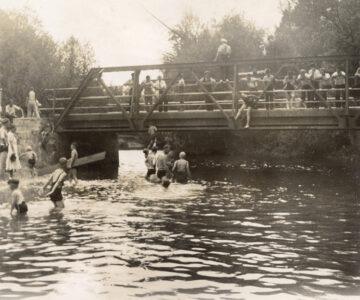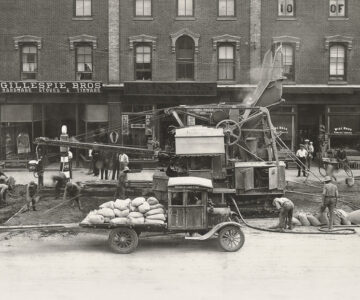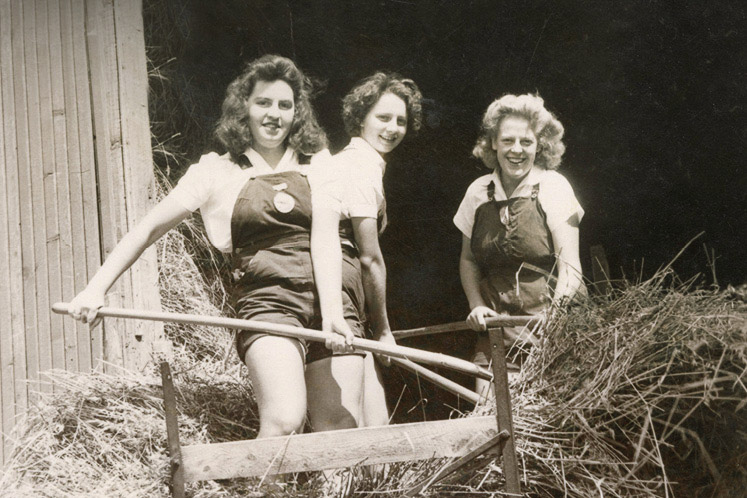Mary Brett, Farmerette
As World War II raged in 1943, dozens of Shelburne High School students traded in their text books for farmer’s tools to support the war efforts, becoming ‘farmerettes’.
As World War II raged in the spring of 1943, the halls of Shelburne High School suddenly became, if not quite silent, much quieter. Fifty of the school’s 122 students had packed away pencils and books and, answering the call to support the war effort, gone to work on farms.
Mary Brett, pictured in the foreground, was one of the 50. At 17, she joined the Ontario Farm Service, which included the “farmerette” (yes, really!) program for young women.
Living in camps supervised by the YWCA, farmerettes worked on farms during those wartime summers – for 25 cents an hour, less $4.50 a week for room and board. Still, as a bonus, those in Grade 13 could be exempted from the dreaded senior matriculation exams.
And it wasn’t all work. Away from the strictures of home, friendships were formed, boyfriends were acquired, and loads of fun was had. By all accounts, many of the farmerettes counted those summers as their best ever.
But for Mary, with two older brothers in active service, worry must have cast an unwelcome shadow. And in 1944, that worry proved well-founded. Her brother Robert was lost – along with all hands – when his ship, HMCS Shawinigan, was torpedoed by a German submarine.
Perhaps inspired by the memory of her brother, Mary herself went on to a career as a nurse in the Canadian navy.
Related Stories

Swimming at Woodside Lodge
Jun 16, 2023 | | Back StoryA snapshot from August 1938 captures the joy of cooling down in the Nottawasaga River on a hot summer’s day.

Paving Broadway, 1921
Mar 20, 2023 | | Back StoryIn our first installment of Back Story, we zoom in on the paving of Orangeville’s main street, Broadway, more than 100 years ago.







